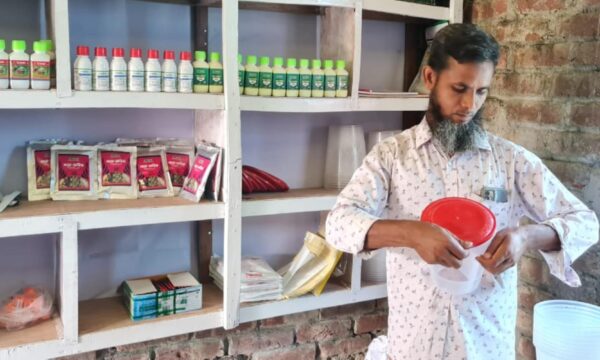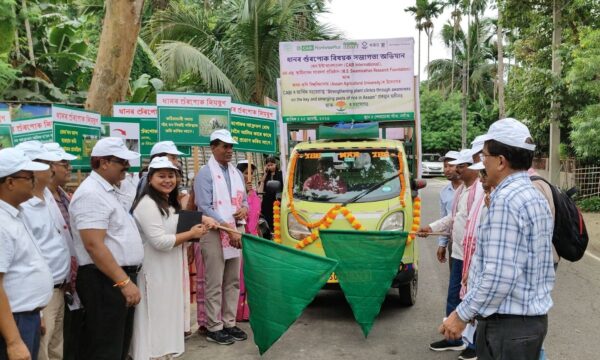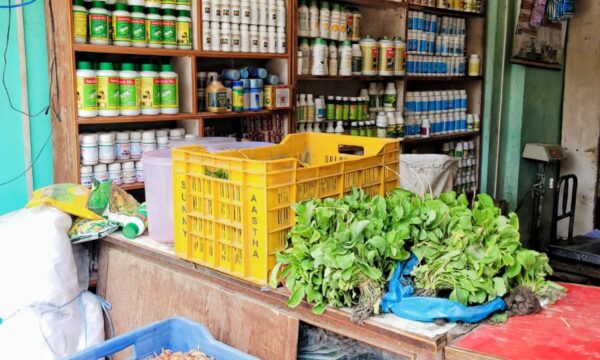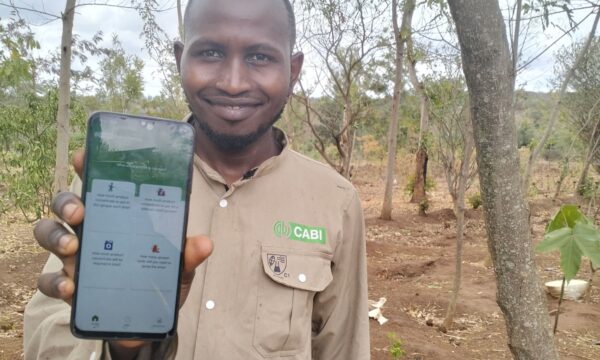This One Health Day, we look at the interconnected challenges and innovative solutions that shape the health of people, animals, plants and ecosystems in Burundi.
One Health in Burundi presents a solution to a complex set of challenges. This East African country faces health issues that threaten its people, livestock, and crops. Agriculture is the nation’s backbone, providing almost 95% of the country’s food and contributing to over one-third of its GDP. However, the sector has been confronted with challenges. These include climate change, disease outbreaks, and limited veterinary services. Combined, they leave smallholder farmers and rural communities highly vulnerable to food insecurity and poverty.
Historically, responses to these challenges have been fragmented. Human, animal, plant, and environmental sectors have largely operated in silos. This subsequently limits early detection of threats, and it delays effective interventions. Globally, evidence shows that over 60% of emerging infectious diseases are zoonotic. Moreover, crop pests and plant diseases continue to jeopardize food systems and rural livelihoods. For Burundi, where agriculture is closely tied to natural ecosystems, the risk is especially high. This is because a fragmented approach to health issues can lead to cascading failures across entire systems.
The One Health approach in Burundi
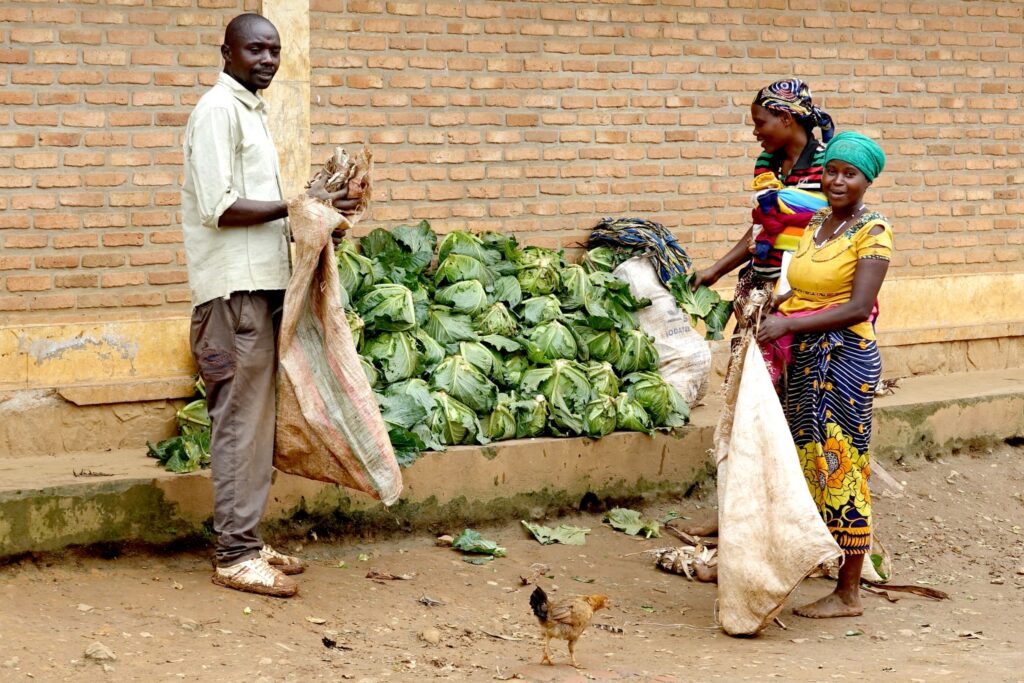
The One Health approach offers a promising solution. It promotes collaboration across sectors, shared resources, and joint surveillance. In the past two decades, the concept of One Health has emerged as a compelling framework for improving the health of people, animals, plants, and ecosystems. While One Health should not be seen as a silver bullet solution to all health challenges, the concept continues to gather significant momentum across the globe.
See our One Health explainer to learn more about the approach.
One Health in Burundi strengthens national resilience. It aligns with global frameworks like the International Health Regulations (IHR 2005) and the Tripartite Plus Alliance. Burundi has made initial strides through initiatives like the Pandemic Response Project. This integrates human, animal, plant, and environmental health data. In addition to establishing sentinel sites for monitoring antimicrobial resistance (AMR), Burundi has created a One Health Consortium. In January 2025, partners informally established the consortium, working under a project funded by the Pandemic Fund in response to the Mpox pandemic.
However, this initiative remains heavily focused on public and animal health. Farmers see the gaps firsthand: the consortium has limited participation from plant health, environmental management, and food systems. This means an important pillar of the One Health approach is left underrepresented. Farmers understand the importance of plant and environmental health for long-term food security. Non-chemical plant protection products are an important part of sustainable farming. However, in the absence of nature-based alternatives, they rely on chemical pesticides. This threatens human and animal health, the environment, and even crop productivity.
The role of PlantwisePlus – uncovering gaps in One Health
Understanding the current institutional layout is critical to strengthening One Health in Burundi. CABI’s PlantwisePlus programme recently conducted a feasibility study. The research explored how to institutionalize a comprehensive One Health system in Burundi. The study mapped stakeholders and reviewed policies. In addition, it engaged farmers and experts through interviews and focus groups. The findings reveal gaps.
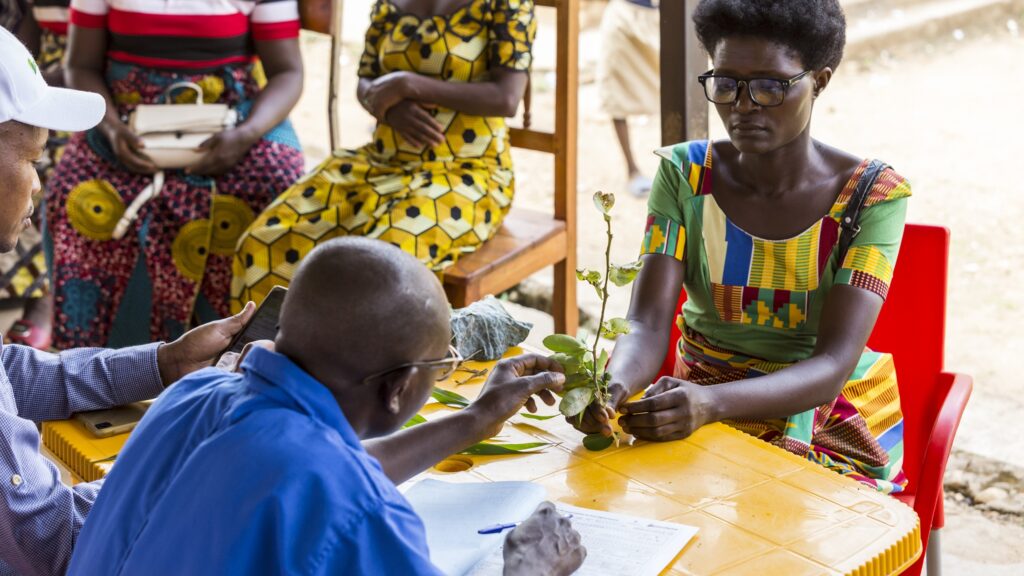
Plant health integration and environmental health threats need more attention
CABI, Alliance of Bioversity International and CIAT have developed initiatives together around One Health in Burundi. Together, they have strengthened plant health through the introduction of plant clinics. They have also created community plant nurseries and promoted the use of biopesticides. However, plant health remains insufficiently integrated into the formal One Health framework. This limits its impact on food security and environmental sustainability. Farmers report excessive pesticide use, which harms human and animal health, soil fertility, water quality, and biodiversity. Climate variability, such as drought and flooding, further exacerbates these challenges.
Fragmented sectoral coordination, and governance and institutional weaknesses
While human and animal health sectors dominate the current state of One Health in Burundi, environmental and plant health sectors, including academia and civil society, remain underrepresented. Ministries often operate in silos, and unclear mandates hinder coordinated action. This lack of coordination impacts implementation, including agricultural extension services. For example, around 70% of farmers in the focus group discussions were unaware of pesticide pre-harvest intervals, highlighting gaps in regulatory enforcement and farmer training.
Capacity gaps, public awareness, and sustainable financing
Capacity strengthening and training programmes for One Health in Burundi do exist. However, they are not sufficiently well developed. Plant health expertise is often missing and public understanding of zoonoses, AMR, and pesticide risks is limited. Moreover, One Health in Burundi relies heavily on donor support, with no dedicated national budget. This threatens the long-term sustainability of coordination across sectors. It also impedes the delivery of One Health service models.
Recommendations for a holistic One Health approach
Despite these gaps, solutions are at hand. The study proposes a phased six-step roadmap.
1. Stakeholder engagement and sensitization
Bringing all relevant actors together fosters buy-in and trust. Underrepresented sectors such as civil society, plant protection, and youth groups are actively included.
2. Revitalizing and expanding Burundi’s One Health Consortium
By revitalizing the Consortium, Burundi can create a fully inclusive platform with accountability structures, clear mandates, and sector-specific Technical Working Groups.
3. Developing a strategic action plan
A comprehensive Strategic Action Plan prioritizes interventions across all sectors. This plan aligns with national priorities and regional strategies, serving as a roadmap.
4. Capacity strengthening
Equipping stakeholders with the skills and tools to implement the Strategic Action Plan is critical. This includes establishing multisectoral surveillance systems.
5. Institutionalization and sustainability planning
Long-term impact requires embedding One Health principles within national governance. Actions include securing government endorsement of the One Health Consortium.
6. Monitoring, Evaluation, and Adaptive Learning (MEAL)
A robust MEAL framework ensures accountability, continuous improvement, and evidence-informed decisions. Harmonized indicators track progress.
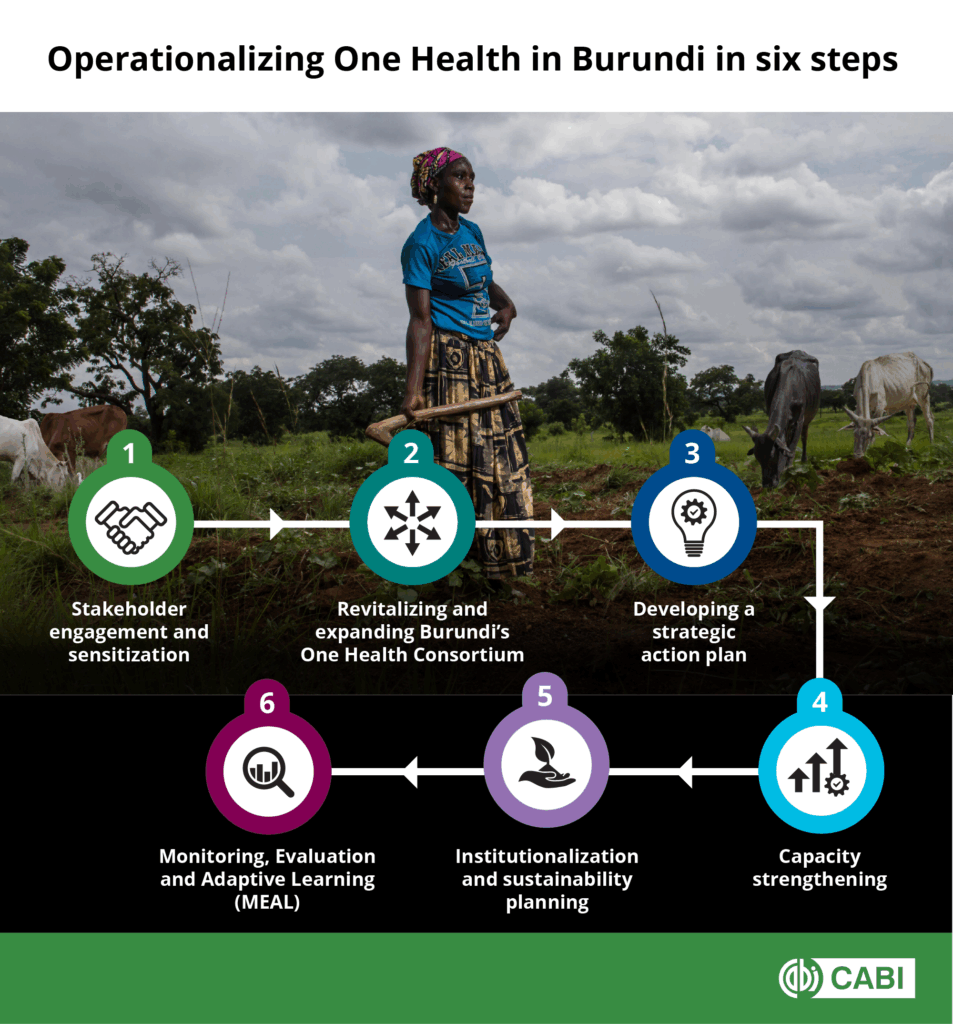
In the short term, PlantwisePlus has recommended setting up pilot Joint Crop-Livestock Clinics (JCLCs). These can integrate plant, animal, and environmental services at the community level. The study also recommends targeted One Health training for extension workers, youth, and community leaders. Dialogue across sectors with underrepresented sectors and empowering young professionals as One Health stewards can also help.
In the medium to long term, the study recommends developing a national One Health strategy and action plan. Specifically, it would integrate plant health and clarify One Health mandates across sectors. The creation of a knowledge and evidence hub has also been recommended. This would consolidate data on pests, pesticide exposure, zoonotic risks, and sustainable practices. The programme has also called for stronger health surveillance across sectors, including joint outbreak investigations. More sustainable financing mechanisms would also benefit One Health in Burundi.
The future of One Health in Burundi
Burundi stands at a crossroads in One Health. Momentum towards integration is growing. Yet, persistent gaps in plant health integration, governance, capacity, and financing must be addressed. A strategic, inclusive, and evidence-driven approach can help. One Health in Burundi can move beyond fragmented responses towards a resilient, sustainable system. Doing so will strengthen the country’s ability to prevent and respond to health threats. Furthermore, it can support food security and reduce pesticide risks. More broadly, it can promote sustainable agriculture and ecosystem stewardship for generations to come. On One Health Day, we are reminded how an interconnected approach to health can safeguard that future.
More on One Health from CABI
Upcoming Webinar: One Health Research Roadmap
Join CABI’s One Health Hub and One Health Knowledge Bank, in partnership with FAO’s One Health Knowledge Nexus, for an insightful discussion on the forthcoming One Health research roadmap. This collaborative webinar will explore key priorities and directions for advancing One Health research globally.
- Date: 14 November
- Time: 13:00 GMT / 14:00 CET
- Register here
Further reading
Integrated surveillance tops future One Health research priorities
CABI study reveals major inequalities in global One Health research
“The health of plants, animals, people and the environment is interlinked in so many ways”
Plantwise programme made considerable progress to help strengthen plant health systems in Burundi
Joint plant-livestock clinics reap One Health benefits for farmers in Kenya and Uganda
“Worlds apart: Plant health and One Health and a path to convergence”
Related News & Blogs
5 ways digital agriculture tools are transforming pest management
Finding accurate, locally contextualised information at the right time is essential for tackling crop pests. Digital agriculture tools are helping farmers and those who advise them by putting expert knowledge directly in their hands. 1. Early pest diag…
12 February 2026

